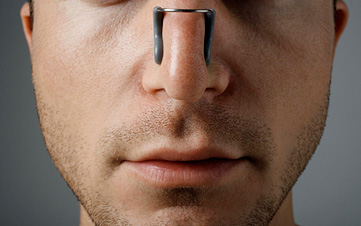Profit and prosper with the best of Kiplinger's advice on investing, taxes, retirement, personal finance and much more. Delivered daily. Enter your email in the box and click Sign Me Up.
You are now subscribed
Your newsletter sign-up was successful
Want to add more newsletters?

Delivered daily
Kiplinger Today
Profit and prosper with the best of Kiplinger's advice on investing, taxes, retirement, personal finance and much more delivered daily. Smart money moves start here.

Sent five days a week
Kiplinger A Step Ahead
Get practical help to make better financial decisions in your everyday life, from spending to savings on top deals.

Delivered daily
Kiplinger Closing Bell
Get today's biggest financial and investing headlines delivered to your inbox every day the U.S. stock market is open.

Sent twice a week
Kiplinger Adviser Intel
Financial pros across the country share best practices and fresh tactics to preserve and grow your wealth.

Delivered weekly
Kiplinger Tax Tips
Trim your federal and state tax bills with practical tax-planning and tax-cutting strategies.

Sent twice a week
Kiplinger Retirement Tips
Your twice-a-week guide to planning and enjoying a financially secure and richly rewarding retirement

Sent bimonthly.
Kiplinger Adviser Angle
Insights for advisers, wealth managers and other financial professionals.

Sent twice a week
Kiplinger Investing Weekly
Your twice-a-week roundup of promising stocks, funds, companies and industries you should consider, ones you should avoid, and why.

Sent weekly for six weeks
Kiplinger Invest for Retirement
Your step-by-step six-part series on how to invest for retirement, from devising a successful strategy to exactly which investments to choose.
When you get the call from a hiring manager about setting up an in-person interview, your chances of sealing the deal skyrocket -- from one out of 200 resumes to one out of five or six job candidates.
Don’t screw up your chances of landing the gig by doing something not-so-smart that could’ve been avoided easily.
Here are seven job interviewer pet peeves that can quickly put you out of the running, with tips on how to steer clear of each one.

Showing Up Late
One of the biggest rules of job interviewing is to never be late. It's better to be twenty minutes early and spend a few minutes prepping in the lobby than to have the interviewer's first impression of you be someone who can’t even manage to show up on time.
If you end up having to travel somewhere that you're unfamiliar with for an in-person interview, map out the directions a couple of days in advance. You might even want to do a test run the day before.

Dressing Inappropriately
If you aren't sure how formal to go (for instance, when you're interviewing with a start-up company), err on the side of caution. It's also OK to ask the person who's arranging the interview for details about the office dress code.
If you're interviewing with a very "dressed down" organization, your HR contact will likely tell you to leave the wingtip shoes at home. Otherwise, show a potential employer that you’re serious about wanting to join their team by dressing the part.

Wearing Too Much Perfume
You're meeting a potential employer for the first time, so don’t show up smelling like anything stronger than Right Guard -- no heavy perfume or aftershave. Also avoid the smell of cigarettes or alcohol on your breath and clothes.
Pity the poor interviewer who has to meet and be in the presence of heavily scented people all day long. Leave the smelly stuff for your social engagements and not a job interview.

Not Doing Your Research
At least five or six other job applicants are vying for the same position as you. Don’t give the competition a leg up. You need to do enough research on the company to be able to answer any question a hiring manager might ask you about their industry and business operations.
A quick way to start your research is through the organization’s Web site. You should be able to find information on the company's history and read its mission statement. Your next stop should be LinkedIn.com, where you can search the networking Web site's company database and find out who currently works there and their job functions. Spending an hour or two online learning about a potential employer is a smart investment of your time.

Talking Too Much
It's OK to be nervous while on a job interview. What's not OK is dragging on for ten minutes in every response to an interviewer’s question. A headhunter once said to me, "If a candidate can't stop talking, I can't send them through to the hiring manager. My clients expect me to send them people who answer questions succinctly."
It's best to practice for an interview in advance, crafting responses to commonly asked questions such as "Why did you apply for this position?" However, if a recruiter hits you with something unexpected, take a moment to think through your response before blurting something out. Gushing your way through an interview won't help your chances of getting hired and may actually rule you out altogether. Remember, sometimes less is more.

Failing to Ask Questions
Oftentimes, job-seekers will focus their interview prep on their responses to an interviewer's potential questions rather than forming some questions of their own. They forget that the hiring manager is just as interested in hearing questions an applicant may have about the company as he is in learning about the applicant's relevant professional experience.
There's nothing worse than at the end of an interview when a hiring manager asks if you have any questions about the company and you've got nothing to say. Simply put, it shows a lack of interest.
Be sure to construct three or four company-specific questions beforehand, so when the time comes you can show that you’re just as interested in learning more about that potential employer as they are in getting to know you. Some examples of questions are: What are your thoughts on the recent merger of Competitor A and Competitor B? How will the deal affect your 2012 marketing strategy?

Getting Too Personal
I once interviewed a woman who inquired about the breeds of dogs I have. (I don't have photos of the dogs in my office, but we were chatting as the interview began and she asked me, "Do you have any pets?") Once we'd established that I did in fact have small dogs, she followed up with, "Oh! I have the greatest groomer. I'll bring your dogs over there one day -- just let me know when." It was a nice gesture, but totally inappropriate for a job interview.
An interview is a business meeting, not a social engagement. Yes, it can be fun to compare notes -- perhaps you have some professional acquaintances in common -- but it’s critical for a job-seeker not to forget that he and the interviewer are business contacts, not personal friends.

More From Kiplinger
QUIZ: Ace Your Next Job Interview
ON THE JOB: Jump-Start Your Career in 2012
ON THE JOB: 7 Ways Job Seekers Sabotage Themselves
ON THE JOB: 7 Ways to Use Social Networking to Land Your Next Job
Profit and prosper with the best of Kiplinger's advice on investing, taxes, retirement, personal finance and much more. Delivered daily. Enter your email in the box and click Sign Me Up.


